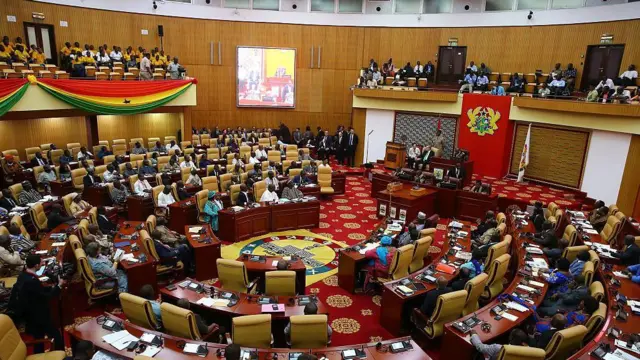IMANI Africa’s Founding President, Franklin Cudjoe, has raised strong concerns about the manner in which the Government of Ghana communicated details surrounding a recently approved $360 million World Bank facility.
While the Ministry of Finance eventually confirmed it is a loan under the World Bank’s International Development Association (IDA), initial descriptions as “budgetary support” have drawn criticism for fostering public mistrust and weakening fiscal transparency.
“On July 1, 2025, Parliament approved a US$360 million facility from the World Bank’s International Development Association (IDA), part of the Second Resilient Recovery Development Policy Financing programme”
IMANI Africa
According to official communication, the funding is intended to support the clearing of government arrears, particularly those owed to road contractors.
However, IMANI and other stakeholders argue that the handling of the announcement lacked clarity and consistency, exposing deep-rooted problems in how government financial decisions are explained to the public.

“The real issue is public accountability, not the loan itself,” IMANI’s commentary emphasized, urging that governments must avoid vague language when communicating major financial undertakings. “This is about political framing and transparency in communication,” the think tank noted.
A key point of contention highlighted by the Minority in Parliament was the discrepancy between what Cabinet approved and what Parliament was told.
Cabinet reportedly endorsed the loan specifically to address arrears owed to contractors, but the documentation presented to Parliament also included other government payment obligations. The lack of alignment, IMANI suggested, hints at deeper lapses in internal communication and raises suspicion over the potential misuse or redirection of funds.
In response to the brewing discontent, the Ministry of Finance officially clarified that the facility is indeed a loan, and that the disbursed funds would strictly be used to settle outstanding arrears to contractors. However, this clarification came only after significant public pressure and outcry from parliamentary stakeholders and civil society actors.
Trust in Fiscal Policy
Franklin Cudjoe and IMANI’s governance analysis emphasized that how a loan is described matters as much as what it is used for.

According to IMANI, trust in Ghana’s fiscal policy hinges not just on responsible borrowing but on transparent and consistent communication with the public and Parliament going forward.
In this case, the $360 million loan might be economically justified and even necessary, but the initial attempt to frame it under the generic label of “budgetary support” rather than identifying it directly as a loan sparked avoidable controversy.
Ghana’s recent fiscal history underscores the importance of this caution – the country has faced repeated setbacks due to poor disclosure practices.
“Ghana has walked a dangerous road before. Hidden energy sector debts, off-budget liabilities, and guarantees quietly tucked away have all undermined fiscal credibility”
IMANI Africa
The think tank cautioned that in a “fragile trust environment,” the government must adopt language that is both accurate and forthright. The organisation insisted that lessons from the past must inform current and future practice if public confidence in governance is to be restored.

Beyond the numbers, IMANI’s position suggested that the broader concern lies in political framing – how decisions are packaged and sold to the public.
When Parliament and the public receive slightly different information than what is circulated within Cabinet, it creates the impression of manipulation, whether or not the underlying economic decisions are sound.
The backlash, IMANI argued, could have been entirely avoided with more careful and transparent language. “Trust in fiscal policy isn’t just about what governments borrow,” the organisation noted. “It’s also about how they say it.”
In an environment where the government administration has promised fiscal discipline and renewed public trust in governance, lapses in communication such as this could undercut those efforts.
IMANI’s warning was clear: transparency is not a technical add-on to public finance, it is the foundation upon which credibility is built.
READ MORE: AU Urges Human Dignity In Corruption Fight



















